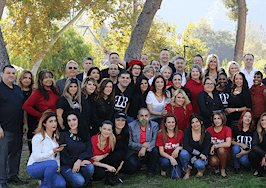More and more consumers are deleting their Facebook accounts as they realize the extent of the data Facebook collects on them — and where the platform sends it — in light of its data-sharing scandal stemming from information harvested by a quiz app that made its way to the controversial data analysis firm Cambridge Analytica.
The users abandoning Facebook are still a minuscule portion of the tech giant’s 2 billion users worldwide. And it’s nearly impossible for people with online profiles to quit the Facebook ecosystem entirely, since Facebook owns Instagram and WhatsApp, two of the biggest social platforms after Facebook itself.
But if even a fraction of the 68 percent of U.S. adults who use Facebook were to leave the platform and search for some sort of replacement for connecting online with people they know in real life, that would create a significant opening for a platform operating at a smaller scale that users still feel like they can trust.
In the United States (and to a lesser extent, in Europe), could that platform be Nextdoor? Possibly, but even with strong growth and expansion, if the social network designed for neighborhoods wants to catch Facebook or even come close, it has a long way to go.

Nextdoor sample site. Credit: Nextdoor
Where Nextdoor stands now
Nextdoor is a neighborhood-based social network launched in 2011 that lets people who live in the same communities interact online to discuss school fundraisers, local crime and issues, lost dogs, favorite babysitters, and other local events and happenings. Users can further post items for sale–including homes for purchase or rent.
Nextdoor has also been in the news for some negative reasons. Namely, some of its users have been accused of racism and racial profiling. However, sources have told Inman that the company has taken a strict no-tolerance policy in weeding out racist posts and that the situation on the website is far better than it was a few years ago.
It’s very much like Facebook in that it lets users sign up, make profiles with their real names, and post text, images and links to articles. It also lets them message other users — handy for real estate agents looking to talk to prospective clients or just become more useful resources to their community.
But unlike Facebook, Nextdoor restricts your interactions to only those people who live in your neighborhood. Nextdoor does this by asking you to enter your address and sending you a physical postcard in the mail to verify you live where you say you do. Using a code on the postcard, you can sign up to start posting on your neighborhood Nextdoor group.
You can also be verified by entering your phone number (if it has the same area code as your address), or your credit card information. However, bear in mind that Nextdoor will keep this information it collects from you potentially indefinitely. You can also be invited online by another neighbor near you. Nextdoor further asks that you give access to your email contact list when you sign up, which could alarm some reeling from the Facebook data privacy scandal.
Those outside of your neighborhood can’t post on your group, and you can’t post in other neighborhoods. The first users who sign up in any given area get to set the boundaries of their neighborhood on a digital map.
Nextdoor is cagey about how many users it has and prefers to report its presence in 170,000 “neighborhoods,” but a year ago the site said it has “tens of millions” of users and expects to reach 100 million active users in the United States by 2020.
Nextdoor has an expressly different purpose than Facebook, which aims to connect everyone, everywhere. But for one of Facebook’s core objectives — connecting with people who are part of your day-to-day life — Nextdoor may be a compelling alternative.

Neighborhood map on Nextdoor. Credit: Nextdoor
The big difference between Facebook and Nextdoor
Facebook is finally facing a serious backlash after Cambridge Analytica, a group working for Donald Trump’s presidential campaign in 2016, gained access to the data of users who agreed to take a personality quiz and then obtained the data of those users’ friends, about 50 million people in total.
The issue boils down to Facebook’s authorization of third-party apps, or companies and developers outside Facebook who create products to be used within Facebook. The tech giant allows users to grant those third parties access to their information, without always making it clear what exactly they’d be sharing and who they’re sharing it with.
Crucially, Nextdoor does not allow third-party apps on its platform. The company confirmed that policy to Inman but declined to otherwise comment or make an executive available for an interview for this story.
Meanwhile, on the “About” section of Nextdoor’s website, the company states unequivocally that “We never share your info with advertisers.”

Privacy promise on Nextdoor’s ‘About’ webpage. Credit: Nextdoor
In an academic study of Nextdoor in 2014, users told researchers at the Georgia Institute of Technology that they were concerned to some degree about privacy on the site and Nextdoor’s use of their data. But the more overwhelming privacy concern among Nextdoor users was posting too much identifying information, like revealing they would be out of town by asking for a housesitter.
“There remain open questions about Nextdoor and community-based social media,” the researchers wrote. “As Nextdoor grows in adoption, its role in the ecosystem of social media might evolve.”
Beki Grinter, one of the researchers on the paper and a professor of interactive computing at the Georgia Institute of Technology’s College of Computing, said via email that there are some “big unknowns” about Nextdoor and Facebook that make it hard to determine whether one could replace the other.
It all comes down to users
But those who use Nextdoor and Facebook regularly can see how Nextdoor could replace some elements of Facebook. The question is, of course, particularly relevant to real estate agents who rely on both platforms as ways to drum up business and get their names out there.
Dan Smith, a former agent in Orange County, California who now acts as a coach and trainer for his wife Melody Smith’s brokerage, said he finds Nextdoor a more productive place to interact with potential clients than the general Facebook feed. But Nextdoor accomplishes many of the same goals as private Facebook groups, where Smith is able to reach a more targeted group of residents.
“You have to leave Facebook as a whole and push people into mini-microcosms and mini groups,” Smith said. “Nextdoor has already done that. They already have the mini groups established.”
The most significant difference for real estate professionals between the two platforms is that Nextdoor has much stricter rules around self-promotion.
Agents on Nextdoor can’t loudly announce their services and instead will often post about their communities and hope Nextdoor users pick up on the fact that they’re also available for real estate. They can, however, pay to sponsor Nextdoor’s real estate listings section, which will put their name at the top of the section whenever someone visits.
Jeannine Brown, a broker associate in Riverside, California, was early to Nextdoor and has been posting a local event roundup for three years.
Brown said that she was watching recent signups to see if any seemed to be from users trying to replace Facebook. But some people in her network, she said, are now more skeptical of social media as a whole because of Cambridge Analytica. Facebook’s failings by extension push them away from Nextdoor, not toward it.
If Nextdoor capitalizes on the surge of ill will against Facebook among users who still hope to stay on social media in some form, it could find ways to fill more of the needs ex-Facebook users would be missing.
“The next step for them would be to add other ways people can communicate,” Smith said. “There’s no Nextdoor Live, no Nextdoor Messenger. If they add additional ways for interaction to occur on a hyper-focused level, that’s where growth will occur.”












